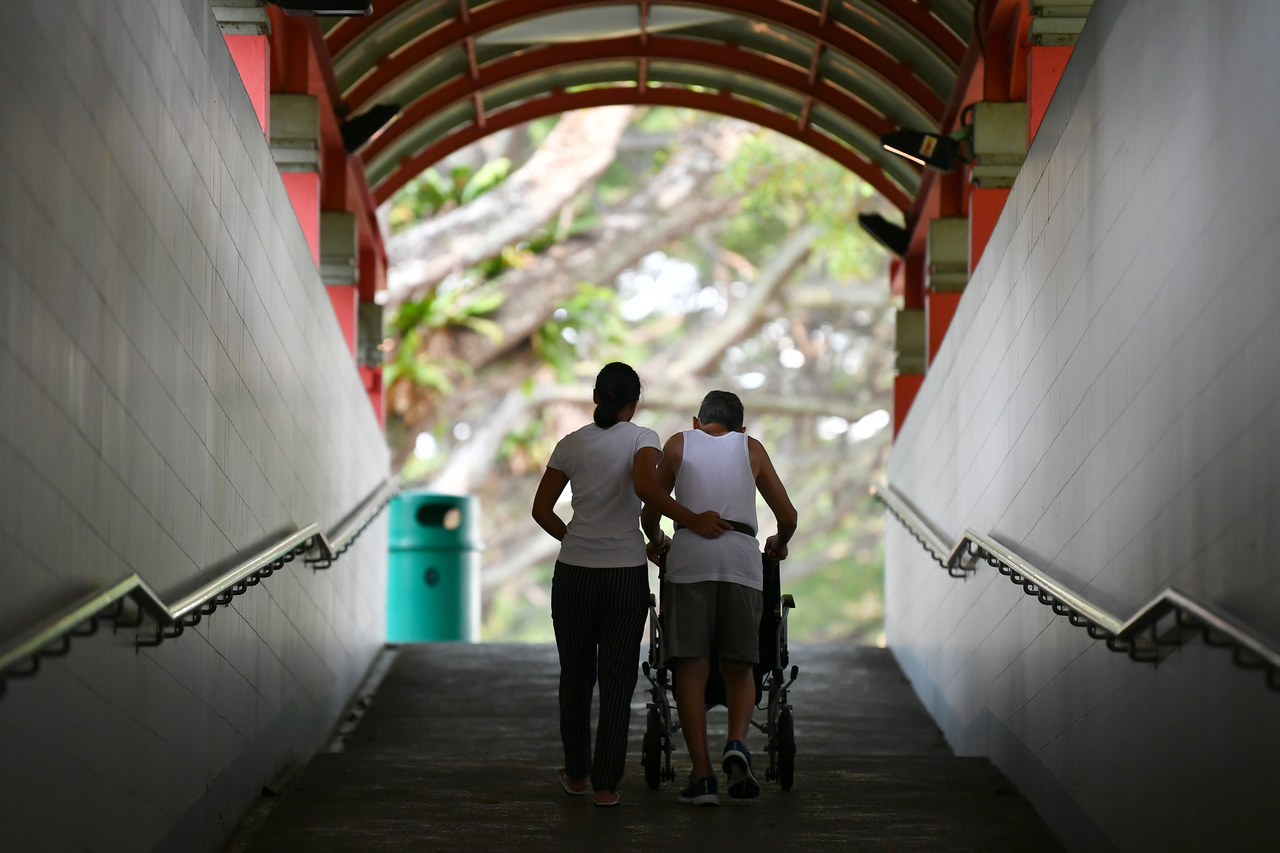Most support having better working conditions for maids
Sign up now: Get ST's newsletters delivered to your inbox

Nearly three quarters - 74 per cent - of Singaporeans surveyed who employ foreign domestic workers said they support improved labour conditions for domestic helpers.
ST PHOTO: LIM YAOHUI
Although attitudes of Singaporeans towards migrant workers in general may have cooled, support for better working conditions for foreign domestic helpers is high.
Nearly three quarters - 74 per cent - of Singaporeans surveyed who employ foreign domestic workers said they support improved labour conditions for domestic helpers.
Also, 64 per cent of the employers supported providing the same labour rights to foreign domestic workers as other workers.
These rates of support were better than those in Malaysia and Japan, but lower than those in Thailand, according to a study of these four countries published yesterday by the International Labour Organisation and United Nations Women.
"Women migrant workers are concentrated in low-paid and informal sectors, with limited social protections, including limited access to services for violence against women. Without protections, women migrant workers can face higher incidences of economic exploitation and gender-based violence," the report noted.
The average salary paid by Singaporean employers to full-time maids was also the highest among the four countries, at $650. The lowest was in Thailand, at 9,800 baht (S$440).
But Thai employers provided their maids with the most work entitlements - out of a list of eight that includes annual leave, one rest day per week, overtime pay, and the ability to keep their own passports.
Only 59 per cent of Singaporean employers said they provide one day off per week, while 47 per cent said they allow the use of a mobile phone outside of work hours.
Under the law, helpers here are entitled to one rest day per week, or payment in lieu.
Responding to the study, Humanitarian Organisation for Migration Economics case manager Jaya Anil Kumar said employers here may subscribe to the idea of better labour standards but fall short in practice.
"Entrenching these protections in the law would provide clear protection standards for domestic workers and minimise the chance of well-being standards being left to the determination of individual employers. At the same time, it would enhance the perception of employers towards domestic work," she said.
When it comes to better law enforcement to reduce violence against domestic workers, practices such as denial of rest days, confiscation of mobile phones and intrusive surveillance isolate domestic workers and create barriers against their ability to develop support systems and seek timely help, she added.
The study also looked at attitudes towards migrant women in general, among the 1,005 Singaporean respondents.
About 79 per cent supported migrant women having access to shelters if they experience violence, and 77 per cent supported stronger law enforcement to reduce violence against them.
But they were less open on social issues. Only 49 per cent felt that migrant women should be free to marry local citizens and 54 per cent felt they should be offered maternity leave. These were the lowest figures out of the four countries.
The survey also looked at attitudes towards the decriminalisation of sex work. Support was highest in Thailand (40 per cent), followed by Singapore (36 per cent), Japan (30 per cent) and Malaysia (17 per cent).
Joanna Seow


